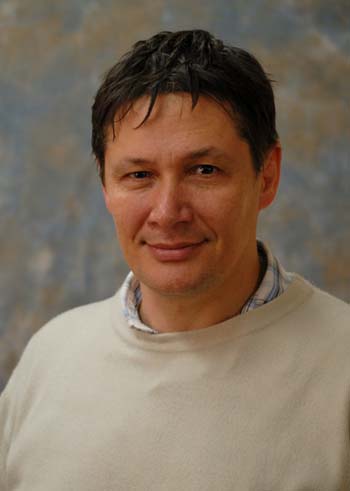Lancaster physicist awarded prize

Dr Guennadi Borissov from Lancaster University has received the annual award in the Division of Nuclear and Particle Physics from the Institute of Physics. He was recognized by the Institute for his work on the physics of subatomic particles containing the “bottom quark”, or B physics.
He is part of the DZero team of international scientists at the Fermi National Accelerator Laboratory (Fermilab) in the US, whose work attracted international attention when they found evidence of a bias towards matter over antimatter in the universe. This observation could help to explain why the universe exists.
Dr Borissov said: “I consider this award as a recognition of the DZero experiment and its role in particle physics, in particular its contribution in B physics studies.”
The team’s discovery found a one percent difference between the production of pairs of subatomic particles called muons and pairs of antimuons in the decay of B mesons produced in high-energy collisions at Fermilab’s Tevatron particle collider.
This could help rewrite the current theory, the Standard Model of particle physics, and open the door to a new Theory of Everything - a unifying theory to explain and connect all physical phenomena which physicists have long dreamt of.
Dr Borissov was also among the principal researchers on a seminal paper from the DZero team looking at the frequency with which the Bs meson can flip back and forth between a particle and anti-particle.
Professor Peter Ratoff, Head of the Department of Physics at Lancaster University said: “Guennadi has made a number of key contributions, not just to physics but to developing tools that enable many people to do physics.”
One of these contributions included the development of sophisticated software for tracking B particles after they are produced in collisions. These tools allowed the researchers to exploit the specific capabilities of the DZero experiment.
Dr Borissov will receive the £500 prize at the Institute’s conference in April.